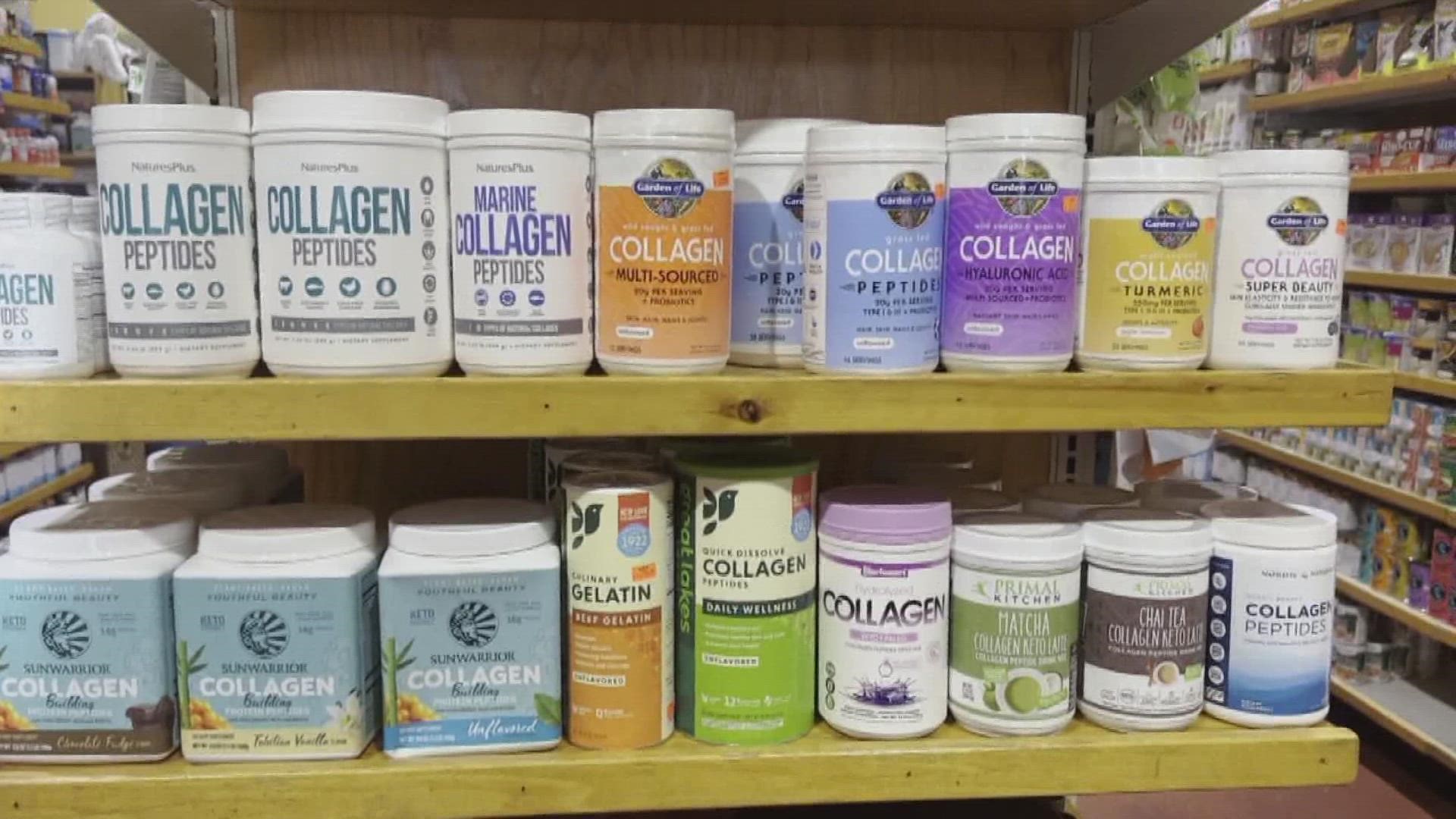GREENSBORO, N.C. — Here’s yet another trend to add to your list: collagen. Promising younger-looking skin and flexible joints — Consumer Reports says this craze may actually have some benefits, and reveals what the collagen fuss is all about.
Thousands of U.S. consumers spent 222 million dollars on collagen supplements in 2021 alone. So what makes this popular protein so special?
"As we age, we produce less of it, so the skin starts to sag and wrinkle. And without enough fresh collagen, our tendons, ligaments, and joints can be less flexible," says Lauren Friedman, Consumer Reports Health Editor.
Is taking more collagen the answer? Consumer Reports says early research shows promise, but more evidence is needed. When it comes to supplements of any kind, use them with caution.
"The Food and Drug Administration does not guarantee you’ll get what the package claims. But you can also up your intake by adding more collagen-rich foods into your diet," said Friedman.
How? Examples of collagen producers are bone broth or tough cuts of meat., but adequate amounts of any protein will provide what your body needs to make collagen — about 25 to 30 grams per meal — or the equivalent of 4 ounces.
And lifestyle can also affect your collagen supply. Things like sun exposure, smoking, excessive alcohol or sugar intake, and lack of sleep can speed up the process of losing collagen.
Consumer Reports: Are Collagen Supplements Safe?
CONSUMER REPORTS ARTICLE TACKLES THIS: Collagen supplements—as well as the collagen being sprinkled into various food products—are usually derived from the skin, hide, tendons, bones, cartilage, or other connective tissues of cows, pigs, chicken, or fish. Collagen claimed to be vegan is made from genetically modified yeast and bacteria, but there is little evidence that it would have the same potential benefits as animal-derived collagen.
As is the case with all dietary supplements, the Food and Drug Administration doesn’t verify that collagen supplements contain what they say they do or determine whether they’re contaminated with heavy metals, bacteria, or pesticides before they’re sold. Because heavy metals and toxins can collect in animal bones, it’s possible that supplements could be a source of compounds such as arsenic or lead.

